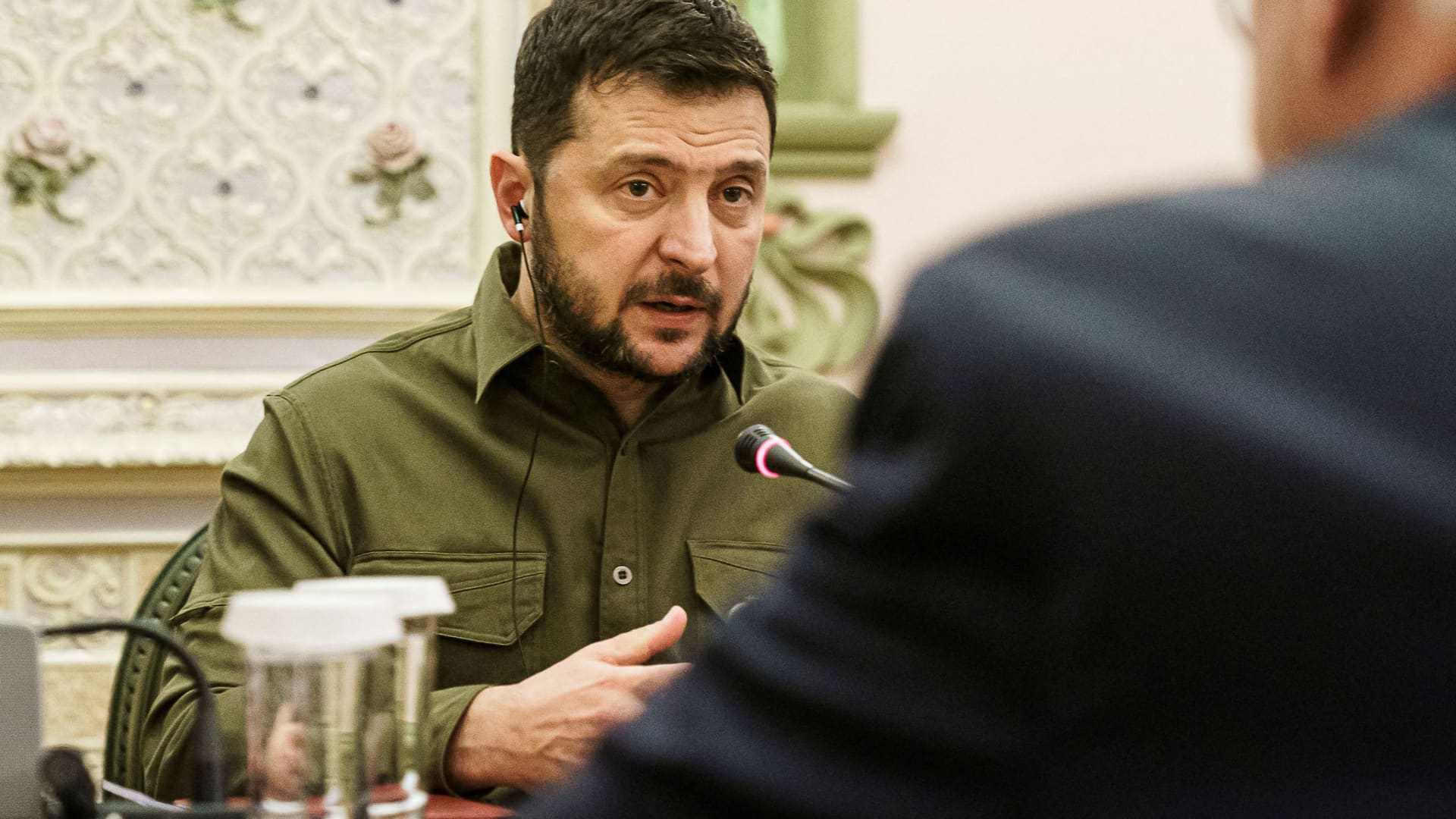Bush’s Credibility Rides On Mideast Peace
Bush assumed a "personal commitment" to advance an Israeli-Palestinian settlement, which is seen as "critical to holding together the tight coalition" Bush built for Iraq and to wage war on terrorism, the paper editorial said.
The Post urged Bush to forget "lukewarm demarches" such as sending his secretary of state to the Middle East, and use his leverage with the Israeli and Palestinian prime ministers, Ariel Sharon and Mahmoud Abbas, to demand each begin taking action.
"If Mr. Bush does not make the effort, he will be blamed for another Israeli-Palestinian breakdown — and for failing to keep his own word," charged the Post.
The daily reported that senior U.S. officials said the administration is urging Sharon, who canceled his trip to Washington after a weekend of bombings, to reschedule his U.S. visit for next week.
Bush is due to leave for a lengthy European trip on May 29, and administration officials feared that momentum would be lost if the Sharon visit were delayed until his return.
The American paper warned that any delay in Bush’s meeting with Sharon to bolster the internationally-backed Mideast "roadmap" peace plan would risk lessening the president’s zeal for pressuring Israel to make its own moves toward peace.
The "roadmap" was formally presented to the two sides on by the United States, the European Union, the United Nations and Russia.
Although the new Palestinian government headed by Abbas immediately announced its acceptance, Israel has balked at a myriad of elements of the document.
‘Disaster’
The Post further said that a group of conservative Christian and Jewish groups released a letter on Monday, May 19, telling Bush that the road map "could lead to a disaster."
The letter, organized by conservative Christian activist Gary Bauer, claimed that any attempt to be "evenhanded" between "democratic Israel" and the "terrorist-infested Palestinian infrastructure" would be "morally reprehensible."
Although U.S. officials said a meeting last Saturday night between Sharon and Abbas was a sign of progress, internal accounts from Israeli and Arab sources described the talks as frustrating and inconclusive.
Supporters of the roadmap peace plan, however, have said that only Bush can force Sharon to act.
"I don’t think anything is going to happen unless the president cracks the whip on Sharon," a senior Arab official said Monday.
"He has to do it in the Oval Office. There is a lot of doubt about the president’s willingness to do so."
The plan’s other authors, the U.N., EU and Russia, have also urged pressure on Sharon, although Bush indirectly chastised them on Monday for undercutting the Abbas government by continuing to recognize the authority of Palestinian President Yasser Arafat.
"Europe must work with us to do everything we can to discourage the terrorist activities that derail a process toward peace," the Post quoted Bush as saying.
U.N. especial envoy for the Middle East Terje Roed-Larsen noted that the plan bars Israel from punitive attacks on civilians and demolition of Palestinian homes, yet "only hours after the presentation of the road map on 1 May, Israeli military operations in Gaza City left 13 Palestinians dead and "destruction of property continued."
On Sunday, May 18, a double attack in al-Quds (occupied Jerusalem) killed 7 people and injured 20 plus the two bombers, said an official Israeli source.
On Monday, at least four people were killed plus the bomber and dozens wounded in a bomb attack at the entrance of a shopping center in the northern Israeli town of Afula.
Maladministration
The New York Times, for its part, said that everything seems to be "going the wrong way" in one of the world’s most combustible regions as Bush tries hard to make the nation "think of him as a statesman."
"Mr. Bush has himself to blame in part, for failing to plan adequately for a postwar period in Iraq, which instead of serving as a model for enlightened American rule… is turning into a symbol of American maladministration."
It further said that the U.S.-led international coalition against terror has been weakened by the US decision to go to war in Iraq, and those "damaged relations now urgently need to be rebuilt."
On the Israeli-Arab conflict, the Times said that if Bush had not neglected the crisis in his first year in office, he might not be facing such a seemingly intractable (Middle East) deadlock today.
Urging "strong, sustained pressure from Washington," the mass-circulation paper said that only "a concerted American effort, led by Mr. Bush himself, can bring (Abbas and Sharon)… to take the steps that are needed to quell the violence and rekindle peace talks."
Even more disturbing, the Times editorial said, were the recent bombings in Morocco and Saudi Arabia, "which have demonstrated that the war against terrorism is far from over (and al-Qaeda’s) organization and its affiliates are far from finished off."
On May 12, some 34 people were killed, including up to 12 Americans, in car bombings blamed on the Al-Qaeda network that razed three expatriate compounds in the Saudi capital Riyadh.
World capitals also condemned bombings in the Moroccan city of Casablanca on May 16, that killed at least 40 people and injured around 60 others, with Israel defending itself against being a main reason behind the surging fatal attacks in the Middle East.
"Saluting cheering troops and campaigning for tax cuts may be good politics for Mr. Bush as he runs for a second term, but the president has a lot of work ahead in the Middle East before he can lay claim to the title of statesman," it said.


